
Messages

Messages
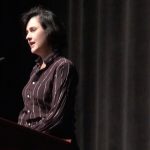 “Much of the joy of fiction is that dimension of reaching out, of imagining, and creating other types of experiences. It’s an interesting question, ‘What is the imagination?’ Different writers have different answers to this. There are some who say everything comes from within you. But the imagination is from that bit within you that is capable of reaching out beyond yourself. It is the greatest thing we have as human beings.”
“Much of the joy of fiction is that dimension of reaching out, of imagining, and creating other types of experiences. It’s an interesting question, ‘What is the imagination?’ Different writers have different answers to this. There are some who say everything comes from within you. But the imagination is from that bit within you that is capable of reaching out beyond yourself. It is the greatest thing we have as human beings.”
Kamila Shamsie , Novelist
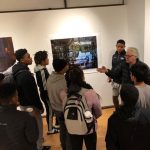 “My English was pretty bad. I couldn’t write a decent sentence, but my pictures were pretty good. In fact, they were paragraphs.”
“My English was pretty bad. I couldn’t write a decent sentence, but my pictures were pretty good. In fact, they were paragraphs.”
Abelardo Morell
Photographer
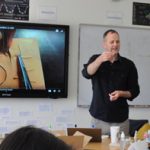 “Your education, from beginning to end, is like a collection of Legos. You’re picking up little pieces along the way, and throughout your life, you’ll figure out ways to put them together.”
“Your education, from beginning to end, is like a collection of Legos. You’re picking up little pieces along the way, and throughout your life, you’ll figure out ways to put them together.”
David Shaye, M.D.
Fulbright scholar; facial plastic and reconstructive surgeon at the Massachusetts Eye and Ear Infirmary
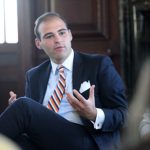 “Chief among those natural rights our founders identified is the freedom of speech. Unfortunately, the mindset on a lot of campuses is ‘You do you, as long as you agree with us on the right issues.’ This isn’t the free exchange of ideas.
“Chief among those natural rights our founders identified is the freedom of speech. Unfortunately, the mindset on a lot of campuses is ‘You do you, as long as you agree with us on the right issues.’ This isn’t the free exchange of ideas.
It’s an audition for ideological purity.”
Max Nikitas ’13
University of Notre Dame Law School student
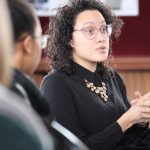 There were times when I didn’t believe in myself, but my community never gave up on me. Because of that, I’ve been able to get to a place in my life where I can come back to Milton Academy and be proud of what I’m telling you about my work.”
There were times when I didn’t believe in myself, but my community never gave up on me. Because of that, I’ve been able to get to a place in my life where I can come back to Milton Academy and be proud of what I’m telling you about my work.”
Soerny Cruz ’12
Educator, Cambridge Health Alliance
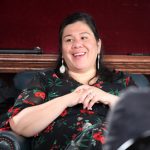 “The only people who are experts on an issue in this world are the people who have lived the issue. My advice for you is to be exactly who you are. To know exactly who you are in this exact moment is enough. If you lead with who you are, you will be on the right road.”
“The only people who are experts on an issue in this world are the people who have lived the issue. My advice for you is to be exactly who you are. To know exactly who you are in this exact moment is enough. If you lead with who you are, you will be on the right road.”
Mónica Ramírez
Activist and civil rights attorney; cofounder, Alianza Nacional de Campesinas (the National Farmworker Women’s Alliance)
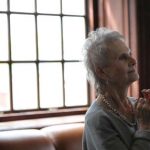 “It doesn’t matter the color of your skin, or how you pray, or whom you pray to. But be of service. Give back. Be grateful. Be grateful that you are hearing from the last of the survivors. Who will tell the story? You will. I’m depending on you. I’m making you responsible. So take me. Take my story. Live good lives, no matter who you are, or how you are.”
“It doesn’t matter the color of your skin, or how you pray, or whom you pray to. But be of service. Give back. Be grateful. Be grateful that you are hearing from the last of the survivors. Who will tell the story? You will. I’m depending on you. I’m making you responsible. So take me. Take my story. Live good lives, no matter who you are, or how you are.”
Sylvia Ruth Gutmann
Holocaust survivor and author of A Life Rebuilt: The Remarkable Transformation of a War Orphan
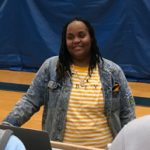 “I tell stories that I’ve felt shame around, about being black, being queer, being a ghetto kid. These stories are specific to my life. All of our stories are hugely important, even the ones that you don’t want to tell.”
“I tell stories that I’ve felt shame around, about being black, being queer, being a ghetto kid. These stories are specific to my life. All of our stories are hugely important, even the ones that you don’t want to tell.”
Lakirya “Oompa” Williams
Poet and hip-hop artist

Robert P. Moses
Dr. Robert P. Moses visited Milton as the Martin Luther King Jr. Day speaker. A contemporary of Dr. King, Dr. Moses is a math educator and was a leader in the Student Nonviolent Coordinating Committee (SNCC) during the civil rights movement of the 1960s. Dr. Moses worked to drive voter registration in Mississippi and, with Fannie Lou Hamer and Ella Baker, founded the Mississippi Freedom Democratic Party. After receiving a MacArthur Fellowship in 1982, he founded the Algebra Project Inc., to provide middle school students with the algebra skills to qualify for honors math and science classes in high school. Dr. Moses received his bachelor’s degree from Hamilton College and his Ph.D. from Harvard University. He taught math in the Bronx, Mississippi, Florida and Tanzania. Dr. Moses is the co-author, with Charles E. Cobb Jr., of the book Radical Equations—Civil Rights from Mississippi to the Algebra Project. He has taught at Princeton University and as an adjunct professor at New York University’s School of Law. He serves on the Education Advisory of the Mathematical Sciences Research Institute.
“In spite of itself, the country has expanded the idea of ‘we the people’ over the years. I see the country as lurching: moving forward and stepping back. It is a constant question: For whom does the Constitution exist? We need a Constitution that is appropriate for the 21st century and going forward.”
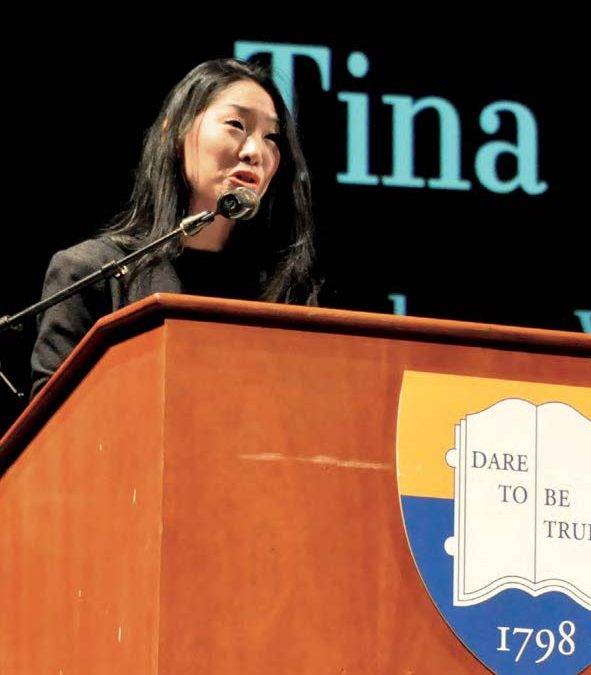
Tina Chang
Sharing visceral works filled with loss, longing, fear and love, Bingham Visiting Writer Tina Chang read her poetry to students and explained how she uses writing to grapple with existential questions about society and motherhood. The award-winning poet and teacher released a collection in 2019, Hybrida, a meditation on raising mixed-race children in America. Her earlier books are Half-Lit Houses and Of Gods & Strangers. Ms. Chang, the first female poet laureate of Brooklyn, has received awards from the Academy of American Poets, the Barbara Deming Memorial Fund, the Ludwig Vogelstein Foundation, the New York Foundation for the Arts, and the Van Lier Foundation. She has also been granted residencies at the MacDowell Colony, the Djerassi Resident Artists Program, the Vermont Studio Center, and the Virginia Center for the Creative Arts. Ms. Chang teaches at Sarah Lawrence and is a member of the international writing faculty at the City University of Hong Kong.
“Are justice and victory the same laurels? . . . For all that we say about death and its peace and its privacy, it’s better to live.”
Brigadier General Richard F. Johnson P ’19 and Afghan Governor Shamim Khan Katawazai
Students who listen to others, instead of fighting to command the spotlight, are building critical leadership skills—sometimes without knowing it—Army Brigadier General Richard F. Johnson P ’19 told Milton students during the Veterans Day assembly. He is the deputy commanding general of the 101st Airborne Division, the Task Force Southeast commanding general in Afghanistan in support of Operation Freedom Sentinel, and the father of two Class I students. The brigadier general is on his fifth combat deployment. Governor Katawazai is a partner in moving toward peace in Afghanistan, and his service to his country comes at significant personal risk as the Afghan government and international security forces clash with violent extremists.
“When I was your age, I didn’t realize that I had the potential to lead; I didn’t really understand how to model leadership. If you want to be a leader, you can do that by being a good follower: being a strong leader at times and a team member at others. Generally, the leader listens. They allow other people to express their opinions, they absorb those opinions, and that allows them to form their own.” — Brig. Gen. Richard F. Johnson P ’19
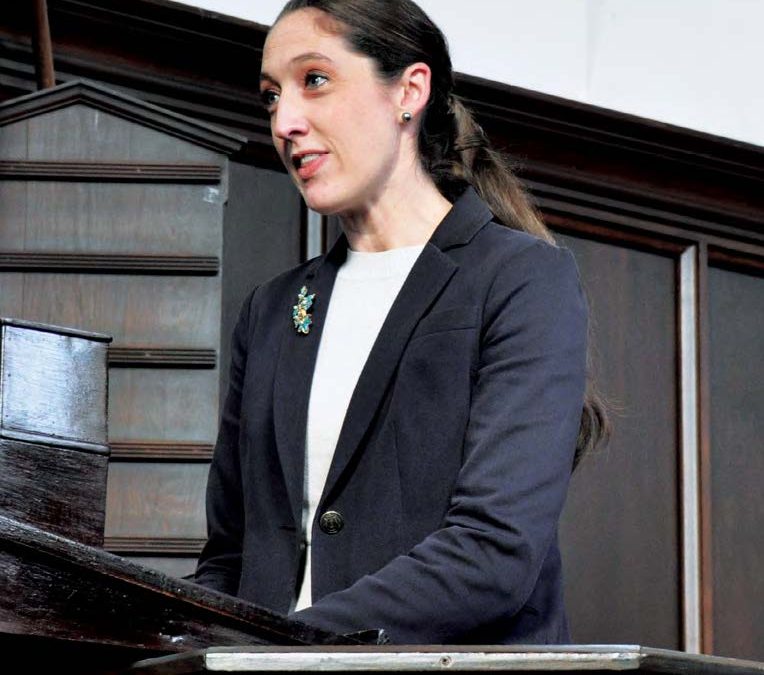
Jill Ashton
Students can make a difference even before they reach voting age, by committing to hold their representatives accountable, said Jill Ashton, executive director of the Massachusetts Commission on the Status of Women. Ms. Ashton visited Milton to speak at an assembly sponsored by F-Word, a feminist student publication, and SAGE (Students Advocating for Gender Equality). Ms. Ashton has served as the executive director for the commission since 2009. The commission recently supported a landmark equal pay bill that went into effect in July 2018. It has also worked in recent legislative cycles toward expanding paid medical leave in Massachusetts and improving access to contraceptives.
“Know who represents you at all levels of government. Your state representative may remember what it was like to be a high school student, but they have no idea what it’s like to be a high school student in 2018. Your experiences and perspective are unique and significant.”
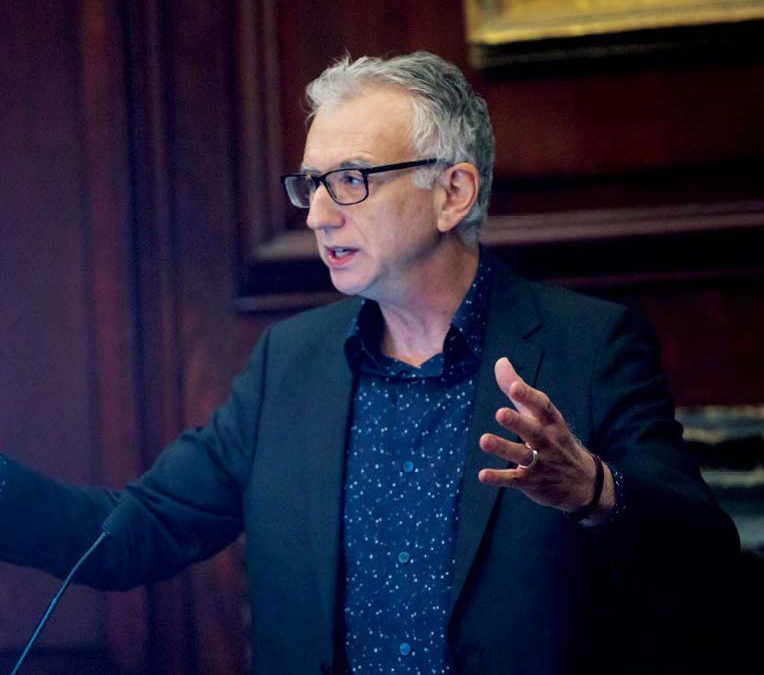
Jed Perl
Viewing art “involves very close looking, but also being open to a variety of ideas,” author and art critic Jed Perl told students. Mr. Perl was on campus as the Melissa Dilworth Gold visiting artist. He showed students various works by artists such as Picasso, Corot and Mondrian, and he discussed the process of “looking at something with your eyes and then figuring out what you are looking at. There is a back-and-forth between looking at it and making sense of it.” Mr. Perl is a regular contributor to the New York Review of Books. He was the art critic for the New Republic for 20 years and a contributing editor to Vogue for a decade. His books include Magicians and Charlatans, Antoine’s Alphabet, and New Art City.
“There is a tendency to think we are looking for one correct answer, a single key to unlock the puzzle, but that’s not how intellectual curiosity works. There are no simple answers.”
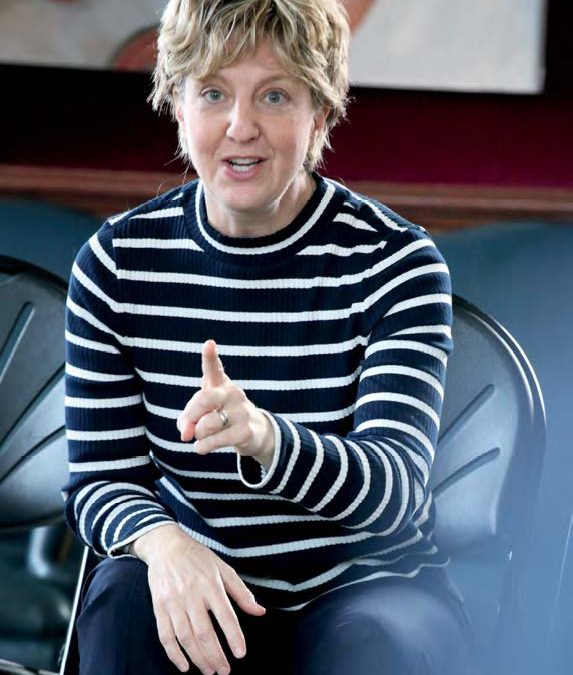
Jacqueline Battalora
The legal distinction of whiteness as a race did not exist anywhere in the world until 1681, when Colonial American lawmakers sought to outlaw marriages between European people and others, the sociologist Jacqueline Battalora told Upper School students. This was, essentially, “the invention of white people,” said Dr. Battalora, who visited Milton as the Henry R. Heyburn guest lecturer. Dr. Battalora is a lawyer and a professor of sociology and criminal justice at Saint Xavier University, and previously worked as a Chicago police officer. She holds a Ph.D. from Northwestern University and has been engaged in anti-racist training since the mid-1990s. Her book, Birth of a White Nation: The Invention of White People and Its Relevance Today, was published in 2013.
“It was truly extraordinary how lawmakers worked to restrict the rights of people of African descent and generated this presumption of superiority via the new status called ‘white.’ There is no genetic basis to the construct of race. It’s about power. And because it is man-made, because it’s about power, we can do something about it.”

Jennifer Bryan
Understanding the differences between gender and sex is key to creating a more welcoming and inclusive world, says Dr. Jennifer Bryan, a nationally recognized expert in gender and sexual diversity. Dr. Bryan is the founder and principal of Team Finch Consultants and the author of From the Dress-Up Corner to the Senior Prom: Navigating Gender and Sexual Diversity in PreK–12 Schools. A graduate of both Princeton University and Teachers College, Columbia University, she began her career as a teacher and coach at The Hotchkiss School. Trained as a counseling psychologist, she offers specialized workshops to preK–12 communities across America.
“It’s important, as we talk about these things, to ask, ‘What’s your gender story? How does your understanding of who you are influence your experience in the world?’ If we’re going to have this conversation, we have to expect that things could be ambiguous, complex and contradictory . . . . What matters is that we want to hear each other’s stories, and we have to be curious. We have to listen like we might learn something.”
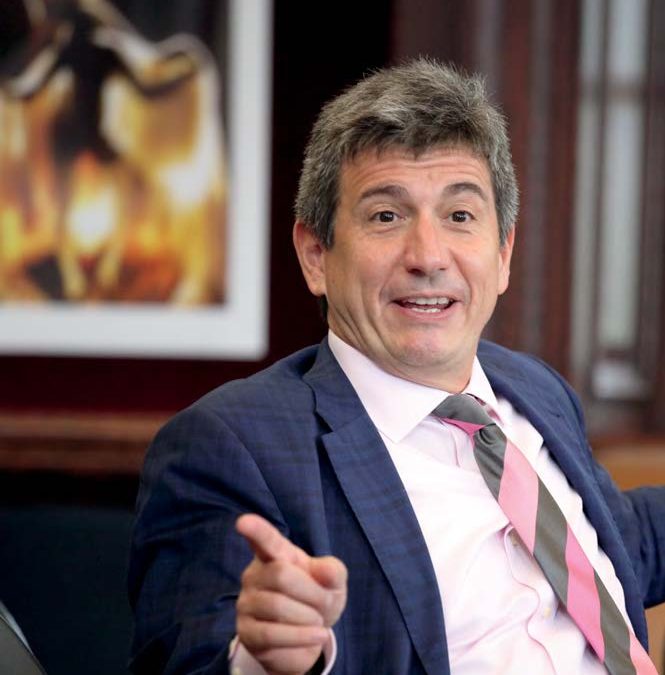
Michael A. Szonyi
As China grows in economic power, an understanding of history provides context for the cultural, environmental and trade shifts ahead for the world, Michael A. Szonyi, this year’s Hong Kong Distinguished Lecturer, told students. Professor Szonyi is the Frank Wen-Hsiung Wu Memorial Professor of Chinese History and director of the Fairbank Center for Chinese Studies at Harvard University. He has written, translated or edited seven books, including The Art of Being Governed: Everyday Politics in Late Imperial China (2017), A Companion to Chinese History (2017), and Cold War Island: Quemoy on the Front Line (2008). He is also a co-editor, with Jennifer Rudolph, of The China Questions: Critical Insights on a Rising Power (2018). A frequent commentator on Chinese affairs, Professor Szonyi is a fellow of the Public Intellectuals Program of the National Committee on U.S.-China relations. He received his bachelor’s degree from the University of Toronto and his doctorate from Oxford University, where he was a Rhodes Scholar. He has also studied at National Taiwan University and Xiamen University. Professor Szonyi previously taught at McGill University and the University of Toronto.
“You are going to be, in your lives and your careers, facing a world where China is dominant in the region, and perhaps dominant around the world, so whether its signature foreign policy initiative succeeds or fails is going to profoundly shape the world that you all live in.”

Paul Yoon
“Books were my first teachers, my best teachers,” writer Paul Yoon told Milton students while on campus as this spring’s Bingham Visiting Writer. Mr. Yoon’s first book, Once the Shore, was selected as a New York Times Notable Book, a Best Debut of the Year by National Public Radio, and won a 5 under 35 Award from the National Book Foundation. His novel, Snow Hunters, won the 2014 Young Lions Fiction Award. He is a former fellow at the New York Public Library’s Cullman Center for Scholars and Writers, and his stories have appeared in Harper’s Magazine, VQR, the PEN/O. Henry Prize Stories, and The Best American Short Stories. The Mountain was released in the summer of 2017. He lives in Cambridge, Massachusetts, with his wife, the writer Laura van den Berg, and he is currently a Briggs-Copeland Lecturer at Harvard University.
“As a student in the ’90s, a lot of the curriculum was based on the work of dead authors. Although I loved it, because they were writing in a time that wasn’t mine, I felt really distanced from it. It was when my teachers gave me contemporary books, books from authors of color, that I came to think about writing as an active art form.”
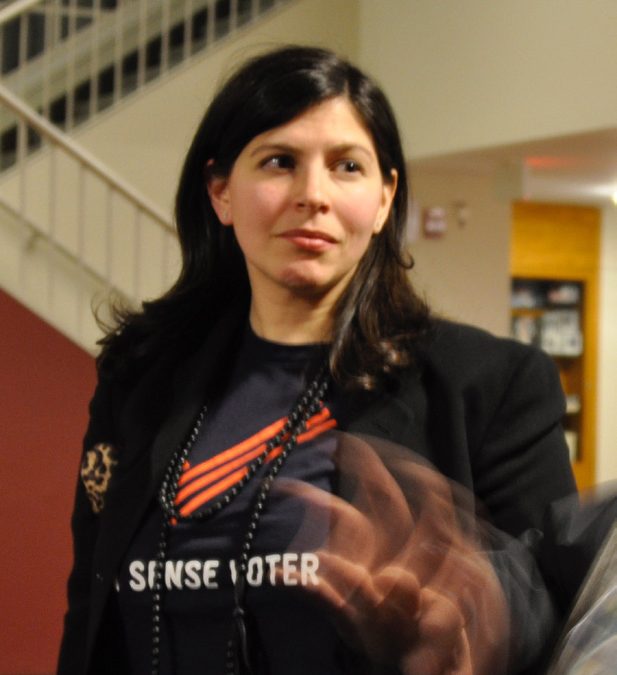
Brina Milikowsky ’96
Gun control has been the “third rail” of American politics for decades, stirring such passionate argument and deep division that compromise on gun-safety measures sometimes seems impossible, gun-control activist Brina Milikowsky ’96 told students. But once you move past messaging from politicians and powerful lobbyists, there is greater hope for agreement among Americans on both sides of the issue, says Brina, who recently worked as chief strategy officer for Everytown for Gun Safety, and is now a political consultant. Brina attended Harvard University and the New York University School of Law. Her career in law, policy and politics has led her to work in commercial litigation and advocacy on reproductive freedom, voting rights and immigration. She was a policy advisor and counsel to New York City Mayor Michael Bloomberg and joined the Mayors Against Illegal Guns team, which evolved into the nonprofit Everytown for Gun Safety following the Sandy Hook Elementary School shooting in 2012.
“We are proving every day to elected officials that we demand leadership on this. The student leaders all around the country who are pouring into the streets and maintaining the pressure on politicians are permanently changing our political conversation in a way that’s laying the groundwork for policy change.”
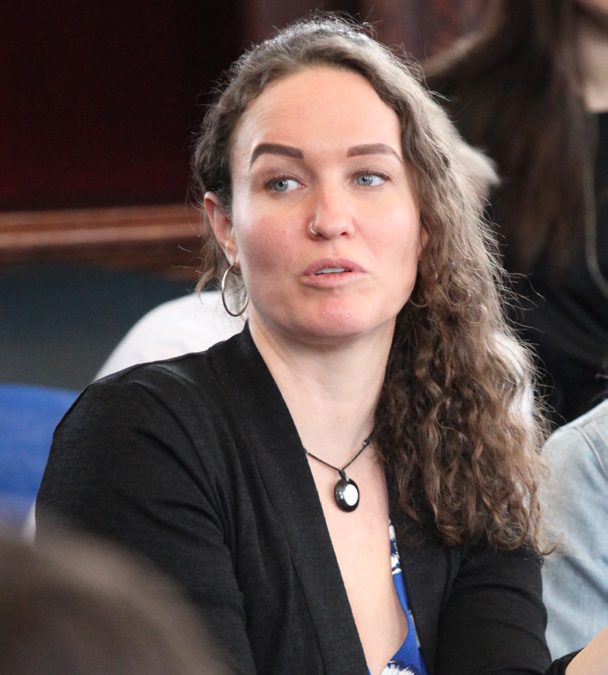
Megan Phelps-Roper
Born into “the most hated family in America,” Megan Phelps-Roper grew up believing that she was working to save people from eternal damnation with her church’s extremist messages. By the age of 5, she was on the picket lines with the Westboro Baptist Church, protesting everything from plays to military funerals with profane signs and slogans. Ms. Phelps-Roper, who left the Westboro Baptist Church — and most of her family — visited Milton as this year’s Class of 1952 Religious Understanding Speaker. Ms. Phelps-Roper’s 2017 TED Talk was one of the year’s 10 most popular. Her memoir, This Above All, will be adapted into a film written by Nick Hornby and produced by Reese Witherspoon. She has appeared on the television shows “I Love You, America” and “The Story of Us.” As a keynote speaker and educator, she engages with schools, faith groups, law enforcement, and anti-extremism organizations on strengthening human bonds through better public discourse. She has been featured in The New Yorker, The Guardian, VICE, The Globe and Mail, NPR, and other international organizations.
“I began to develop an undeniable understanding that we’re human and fallible. We are not divine. That was the beginning of the end for me. Through ongoing conversations on Twitter, I was learning a new story about people I had thought were my adversaries. In spite of their abhorrence of my beliefs, they befriended me.”

Rahsaan D. Hall
Rahsaan D. Hall, the Racial Justice Program Director for the ACLU of Massachusetts, visited campus as the Onyx Assembly speaker in recognition of Black History Month. Prior to joining the ACLU of Massachusetts, Mr. Hall was the deputy director of the Lawyers’ Committee for Civil Rights and Economic Justice. Mr. Hall also served as an Assistant District Attorney for the Suffolk County District Attorney’s Office. In addition to leading the ACLU of Massachusetts’ Racial Justice Program, Mr. Hall serves on the Massachusetts Legal Assistance Corporation’s board of directors, the Hyams Foundation’s board of trustees, and co-chairs the Boston Bar Association’s Civil Rights and Civil Liberties section. He is also a member of the Massachusetts IOLTA Committee. He is a graduate of Ohio State University (B.A.), Northeastern University School of Law (J.D.) and Andover Newton Theological School (M.Div.). He is an ordained reverend in the African Methodist Episcopal Church.
“For so many people, there is no justice in the system. You have to educate yourself about what the roots of these issues are: why it is happening, where it is happening, and to whom this is happening. There is a role for people to play in deciphering and sharing that information. We need economists and statisticians who can analyze how incarceration impacts communities. We need health professionals to look at how incarceration impacts families; the health impacts for children of incarcerated people; and how and why mental illness and substance use are overrepresented in our prisons.”
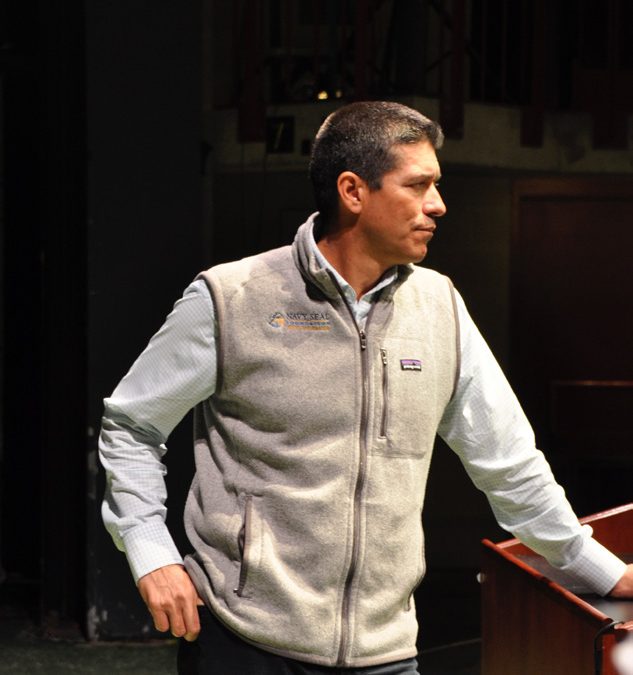
Gabriel Gomez
Navy veteran and former Senate candidate Gabriel Gomez was this year’s Conservative Club speaker. Mr. Gomez, the son of Colombian immigrants, attended the United States Naval Academy and later became an aircraft carrier pilot. Within a few years, Mr. Gomez joined the Navy SEALs after passing its intensive selection and training process, and he spent his SEAL career primarily deploying to South America, Central America and the Caribbean. Mr. Gomez, who rose to the rank of Lieutenant Commander, is one of very few Naval servicemen who have served as both aircraft carrier pilots and Navy SEALs. Following graduation from Harvard Business School, Mr. Gomez worked in private equity before running as a Republican in the 2013 Massachusetts special senate election to replace newly appointed Secretary of State John Kerry. Mr. Gomez won the Republican primary but lost to Democrat Edward Markey in the general election. He co-founded O2X, which provides training and education to first responders, with several Navy SEAL veterans.
“If you become politically active, I implore you to be open-minded and do it for the right reasons, and don’t get stuck in the dogma. Think about what this country needs: people who can compromise and work together. I’m a firm believer that this country is much better than its politics.”




